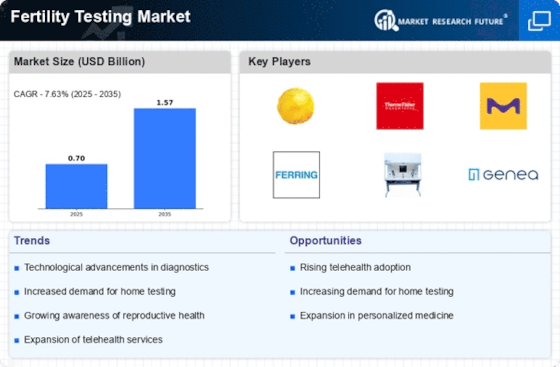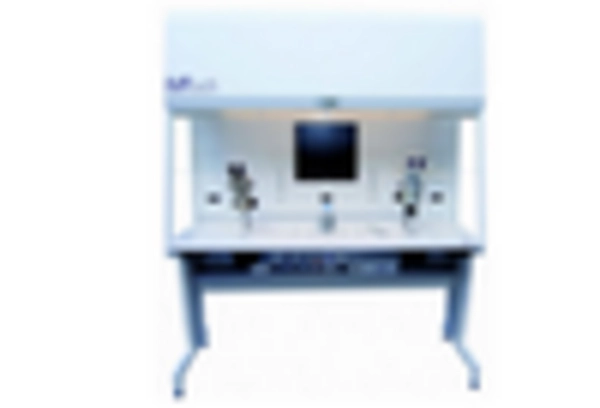Market Share
Fertility Testing Market Share Analysis
Fertility-related concerns are becoming more prevalent, and mindfulness is growing, which is propelling the market for fertility tests to grow rapidly. Businesses in this industry are using various strategies to establish and grow their market share as more couples search for solutions to their infertility problems. Item separation is a crucial technique, whereby firms focus on developing innovative and sophisticated fertility testing procedures. To increase accuracy and customer experience, this may combine cutting-edge innovations like mobile apps and artificial intelligence. Businesses want to differentiate themselves from the competition and attract a certain segment of the market by providing exceptional features. To expand market share, organizations are progressively zeroing in on worldwide extension procedures. This includes entering undiscovered markets and fitting items to meet the necessities of assorted social and segment fragments. By extending their scope internationally, organizations can get to a bigger client base and exploit the developing interest for fertility testing arrangements around the world. A major role for the computer scene is played in market share positioning. Companies use direct-to-purchaser marketing strategies and internet platforms to reach a wider audience. Online business platforms, educational webinars, and virtual entertainment campaigns are used to raise awareness and directly attract clients, resulting in sales and solidifying market position. In the market for fertility tests, transparency and rationality are important factors to consider. Some companies focus on providing cost-effective solutions without sacrificing quality, which makes their products more accessible to a wider market. Organizations can capture market disparity across different pay groups by paying particular attention to evolving financial plan requirements. To be in the forefront of the fertility testing industry, one must commit to ongoing innovation. Businesses invest heavily in R&D to modernize products that are already on the market, promote new innovations, and stay abreast of emerging trends. This proactive approach ensures a competitive advantage and establishes companies as industry leaders in development. Educating consumers about reproductive problems and the importance of testing is a crucial component of market share positioning. To assist customers in comprehending and utilizing the testing method, organizations invest money in creating educational materials, hosting online courses, and providing client care services. This strengthens brand stability and increases customer loyalty. Verification of product security and quality builds customer trust and establishes businesses as reliable and strong competitors. Sensing the unique needs of individuals, several organizations focus on providing flexible and personalized fertility testing plans. Adapting products to certain socioeconomic groups, such as age groups or lifestyle preferences, enables businesses to cater to a variety of customer needs and identify opportunities for growth in specialized markets.


















Leave a Comment